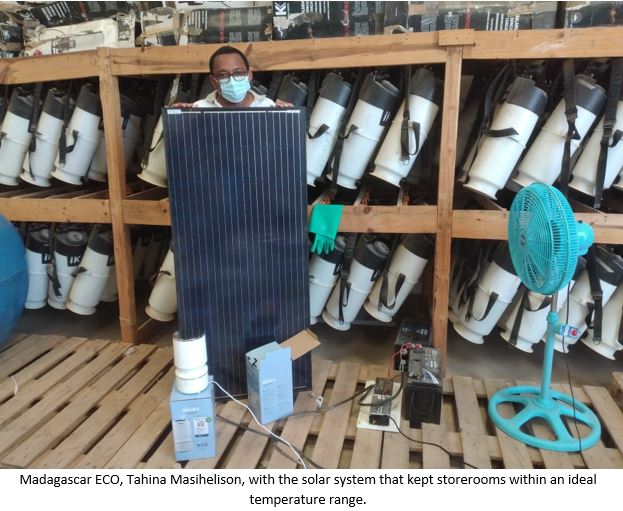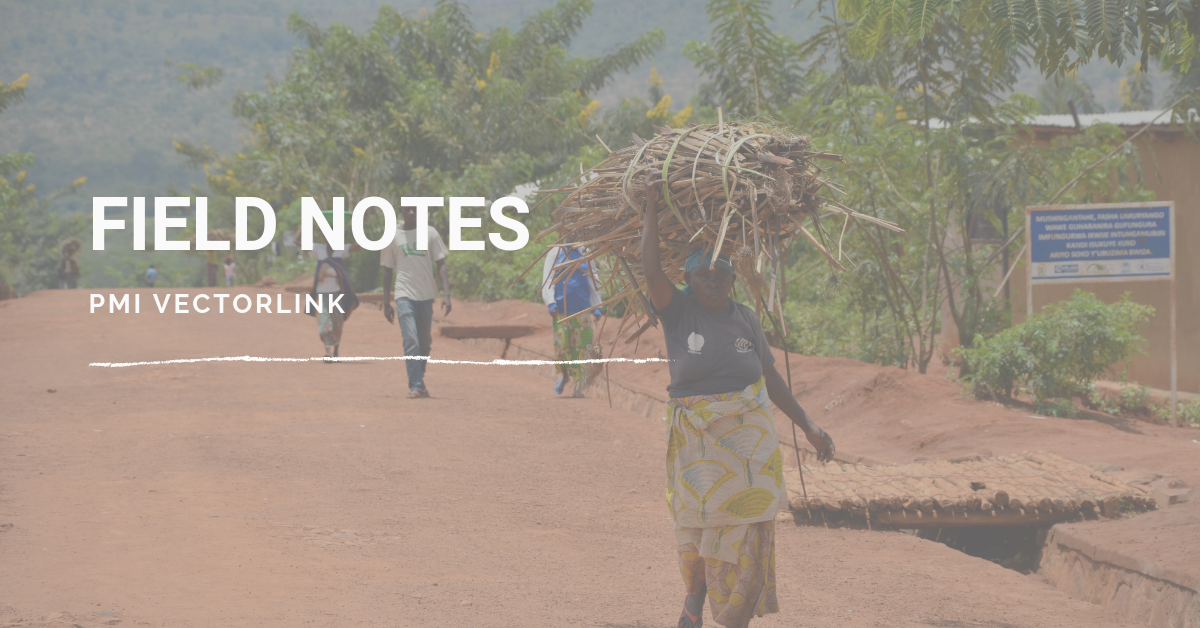 This week’s Fist Bump goes out to Tahina Masihelison, VectorLink Madagascar’s Environmental Compliance Officer for his use of solar power, a renewable energy source, to keep insecticide storerooms within the ideal temperature range.
This week’s Fist Bump goes out to Tahina Masihelison, VectorLink Madagascar’s Environmental Compliance Officer for his use of solar power, a renewable energy source, to keep insecticide storerooms within the ideal temperature range.
The South-West region of Madagascar is feeling the impacts of climate change: temperatures are increasing, droughts are intensifying, and desertification is expanding. The recommended maximum storeroom temperature for current IRS insecticides is 35°C, as higher temperatures could lead to insecticide degradation or damage the integrity of insecticide containers. However, the South-West region, especially the district of Betioky, can have temperatures reaching 42°C even in the shade. Many of the storerooms are not electrified, therefore setting up traditional cooling and ventilation systems is a challenge.
To overcome this challenge in 2021, Tahina and the VL Madagascar team tested the use of a solar-powered cooling and ventilation system in the Tongobory operations site. Use of solar power is practical in this region, as it receives a lot of direct sunlight. The ventilation system comprises a solar panel with the ability to produce 500 Watts of electricity, a battery, an AC/DC inverter, a humidifier, and a fan. The battery stores the energy collected by the solar panel, and powers the fan and humidifier when the sun is not shining. The ventilation system helps keep the storeroom cool and distributes the air evenly, eliminating hot spots.
After the solar powered system was installed, the storeroom temperature decreased by 12°C on average. Therefore, if the outside temperature was 40 – 44°C, the temperature inside the storeroom would be cooled to between 28 and 32°C.
Excellent work, Tahina! This is a great accomplishment and shows how climate adaptations can keep malaria services resilient!


